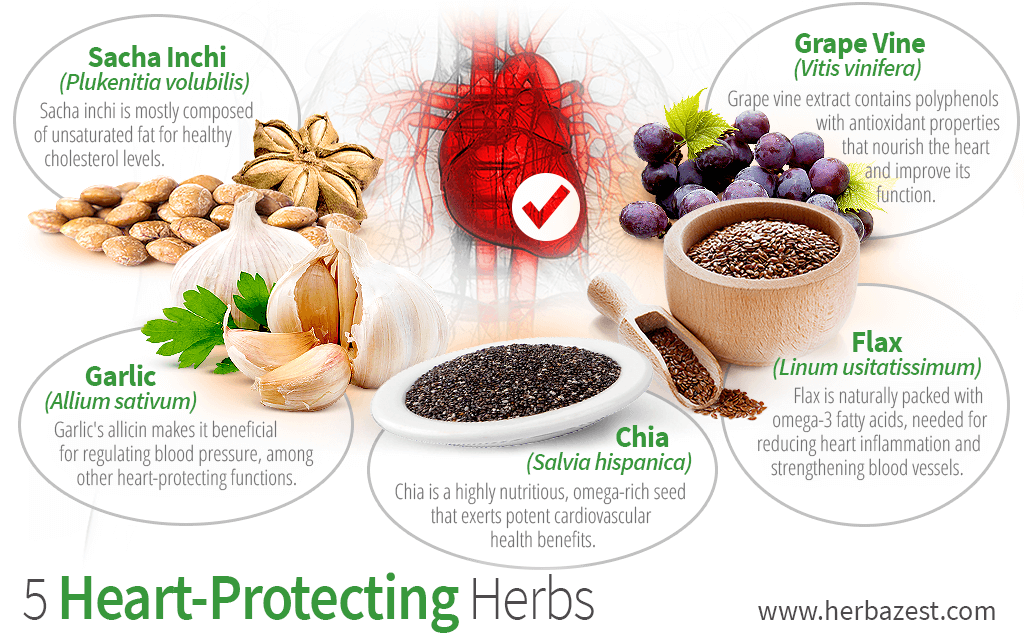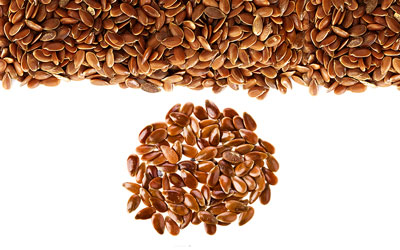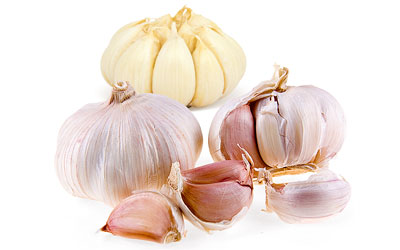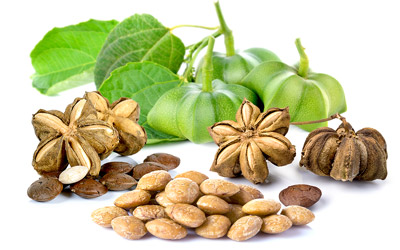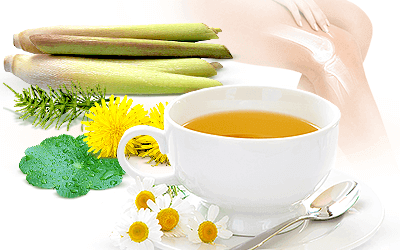The heart's primary function is to pump blood through the veins, arteries, and capillaries that transport blood around the body. The heart is essential to life: if it does not function properly, the organs will not receive enough of the oxygen and nutrients carried in the blood and will begin to shut down. Besides exercise, improving heart health involves following a wholesome diet with foods that are rich in heart-protecting compounds. Keep on reading to discover the best herbs for heart health!
1. Sacha Inchi (Plukenitia volubilis)
The seeds of sacha inchi are rich in quality protein and polyunsaturated fatty acids, including optimal proportion of omega-3, 6, and 9 fatty acids. Unlike the saturated or trans fats often found in junk foods and red meats that raise cholesterol and blood sugar levels, unsaturated fats protect against coronary disease.1 The "good fats" found in sacha inchi can be used by the body as an energy source and - more importantly- actively enhance heart's health by balancing cholesterol levels in the arteries, helping to build up cell membranes, and nourishing sheaths surrounding nerves.
2. Chia (Salvia hispanica)
These South American seeds are small in size, but big in their medicinal properties. Chia has incredibly high levels of both omega-3 and omega-6 fatty acids, and also boasts soluble fiber, protein, and a handful of essential minerals. Its seeds have beneficial effects on cardiovascular health, including regulating blood pressure and cholesterol levels as well as reducing inflammation, which can lead to heart disease.
3. Grape Vine (Vitis vinifera)
The leaves of grape vine contain polyphenols that have significant antioxidant properties that nourish the tissues of the heart and improve its activity. These polyphenols also increase the action of enzymes that are instrumental in balancing cholesterol levels. In addition, grape seed essential oil has been shown to help lower blood pressure, which helps reduce stress on the heart.2
4. Flax (Linum usitatissimum)
Flaxseed has the highest proportion of omega-3 fatty acids of any known food source. Omega-3's are essential in reducing cardiovascular inflammation. In addition, these unsaturated fats reduce the risk of heart disease by strengthening the blood vessels, decreasing the risk of irregular heartbeat, and facilitating the movement of platelets through the blood vessels.
5. Garlic (Allium sativum)
In addition to its potent antibiotic properties, the allicin contained in garlic also has heart-protecting abilities. Heart problems are overwhelmingly more common among those who suffer from high blood pressure. Researchers have pointed out that a daily consumption of aged garlic can reduce blood pressure, improving arterial stiffness, inflammation, and other cardiovascular markers.3
When it comes to protecting the heart, following a healthy diet and lifestyle is essential. Since obesity is a major cause of coronary disease, staying physically active and maintaining a normal body mass index (BMI) is vital for heart disease prevention. With the help of medicinal herbs, one can enjoy a healthy heart for a lifetime.
Sources
- Cereal Chemistry, Amino Acid and Fatty Acid Profiles of the Inca Peanut (Plukenetia volubilis), 1992
- Journal of the American Dietetic Association, The effect of grape seed extract on cardiovascular risk markers: a meta-analysis of randomized controlled trials, 2011
- National Center for Complementary and Alternative Medicine, Garlic
- National Heart, Lung, and Blood Institute, What is the Heart?
- National Institutes of Health, Coronary artery disease
- Oxidative Medicine and Cellular Longevity, Grape Polyphenols Increase the Activity of HDL Enzymes in Old and Obese Rats, 2013
- The British Journal of Nutrition, Dietary chia seed (Salvia hispanica L.) rich in alpha-linolenic acid improves adiposity and normalises hypertriacylglycerolaemia and insulin resistance in dyslipaemic rats, 2009
- University of Maryland Medical Center, Flaxseed oil
- Anais da Academia Brasileira de Ciências, Hepatoprotective, cardioprotective, and renal-protective effects of organic and conventional grapevine leaf extracts on Wistar rat tissues, 2011
Footnotes:
- Atherosclerosis, Thrombosis, and Vascular Biology. (2014). Dietary Fatty Acids and Risk of Coronary Heart Disease in Men: The Kuopio Ischemic Heart Disease Risk Factor Study. Retrieved October 12, 2021 from https://www.ahajournals.org/doi/full/10.1161/ATVBAHA.114.304082
- Medicine. (2016). The impact of grape seed extract treatment on blood pressure changes. Retrieved October 12, 2021 from https://www.ncbi.nlm.nih.gov/pmc/articles/PMC5370781/
- Integrated Blood Pressure Controll. (2016). The effect of aged garlic extract on blood pressure and other cardiovascular risk factors in uncontrolled hypertensives: the AGE at Heart trial. Retrieved October 12, 2021 from https://www.ncbi.nlm.nih.gov/pmc/articles/PMC4734812/


